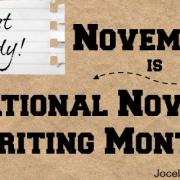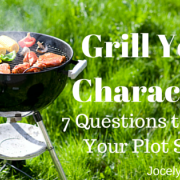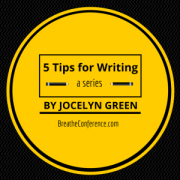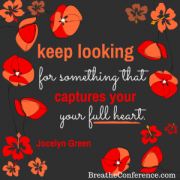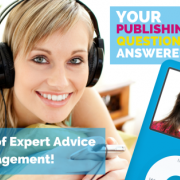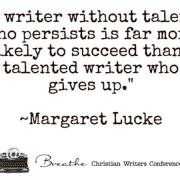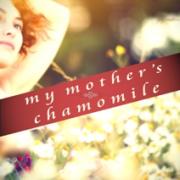Whenever writers/ aspiring authors ask me what they can be doing right now to achieve their goals, one of the things I tell them is to attend every writers conference they can afford (assuming the conference is high quality). Actually, attending writers conferences is also wonderful for published authors. Earlier this month, I attended my favorite: Breathe Christian Writers Conference in Grand Rapids, Michigan. It's an eight-hour drive for me each way, but totally worth it. I know times are tight, and writers are not wealthy people as a general rule. But a high-caliber writers conference will pay for itself in the long run with time saved, network broadened, skills gained, inspiration gleaned, etc. [Tweet "A quality writers conference pays for itself. Here's how."] Using my recent experience at Breathe as an example, here are my top ten reasons to take the plunge (yes, even if you are an introvert and would rather just sit at home and read Writer's Digest):
One-on-one meetings with authors, speakers, editors, agents Where else can you find the opportunity to sit down for 15 minutes and ask a published author anything you want to know, or pitch your book to an agent face to face, or ask an editor what to expect from the publishing process? At Breathe, and at many other writers conferences, attendees can sign up for one-on-one appointments and do exactly that. Amazing. Do not miss it.
[[{"type":"media", "view_mode":"media_large", "fid":"1038", "attributes":{"class":"media-image size-full wp-image-2088", "typeof":"foaf:Image", "style":"", "width":"500", "height":"600", "alt":"During the conference, my friend Susie Finkbeiner signed a contract with Kregel for her third novel, A Cup of Dust! And the crowd went wild! (Well, we clapped and cheered. I went wild on the inside.) Note: When conference attendees grow in their craft and sign contracts, it is a very good sign!"}}]] During the conference, my friend Susie Finkbeiner signed a contract with Kregel for her third novel, A Cup of Dust! And the crowd went wild! (Well, we clapped and cheered. I went wild on the inside.) Note: When conference attendees grow in their craft and sign contracts, it is a very good sign!
The workshops Ah, the workshops! Breathe has tracks for fiction, nonfiction, publishing, blogging, marketing & publicity and more. (My advice: make sure the conference you're considering attending has different tracks so you can choose exactly what you're interested in.) Very often, one terrific workshop will be worth the entire cost of the conference. Here are the ones I attended or presented:
Is There a Doctor in the House? Using Psychology to Enhance Characterization—Dave Beach Therapist/writer Dave Beach helps you explore characters and character arcs using insights from psychology. Deepen your characters and discover dynamics that intensify conflicts and drive your stories with sophisticated, true-to-life tensions. By experiencing a few characters “in treatment,” attendees will understand how to use the Character Doctor tool and finish by applying the tool to a character of their own. Writing the Column: Find Your Voice and Mean What You Say—Charles Honey Charles Honey, longtime religion columnist for The Grand Rapids Press, will talk with participants about the elements of a viewpoint column that connects with readers, including a distinctive voice, authentic conviction, and attitude without arrogance. Honey will lead writing activities that encourage participants to explore their column personality, play with different styles and be honest and vulnerable in their views. The Art of Conversation: Writing True-to-Life Dialogue in Fiction—Susie Finkbeiner Strong dialogue is essential to engaging fiction. As important as it is, often writers struggle to make it authentic and true to life. In this workshop, attendees will not only learn tools to writing dialogue that rings true, they will have time to practice these skills in an interactive, fun session. Be sure to bring extra paper and a pen or pencil. 9 Ways to Bolster Your Historical Fiction Research—Jocelyn Green If you’re writing historical fiction, getting the story world right can be challenging. Learn seven ways –aside from the Internet—to bolster your research and ramp up the immersive quality of your book. Attendees will walk away with several fresh ways to approach their historical research, including National Archives, site visits (real and virtual), museum staffers, paper dolls and coloring books, specialty experts (fire arms, medicine, war, etc.), and far-flung friends. They’ll also come away with template emails and tips for how to approach a stranger for help.
[[{"type":"media", "view_mode":"media_large", "fid":"1039", "attributes":{"class":"media-image size-full wp-image-2098", "typeof":"foaf:Image", "style":"", "width":"236", "height":"286", "alt":"Hee hee. One of the cartoons I included in my presentation on what to expect. :)"}}]] Hee hee. One of the cartoons I included in my presentation on what to expect. :)
What to Expect From Your Book’s First Year—Jocelyn Green What happens once your first book baby is born? If you’re a pre-published author, come hear what you can expect from your release day and the weeks and months beyond. Attendees will walk away with a realistic view of the launch day, and a healthy view of customer reviews. We’ll talk about the pros and cons of launch parties, book signings, blog tours, and give-aways. They will also learn several forms of promotion authors can do for free to bolster their platforms, and what to expect in terms of the first year’s sales. The emotional roller coaster of an author will also be addressed.
The devotional insights Usually at a Christian writers conference, there will be at least one optional devotional morning session, which I love. At Breathe, the bottom line I took away was the reminder that "Who I am is who I am in Jesus." I am not defined by how many books I publish or how many rejections I get. Neither am I defined by reviews or book sales (or lack thereof) or anything else, but who I am in Christ. Friends, this is absolutely liberating.NOTE: For those of you looking for secular writing conferences. I found this article on WritersDigest.com, which lists a bunch of them. I haven't attended any of these, but thought I'd share the resource for those who are interested.
Julie Cantrell
The keynote speaker This year at Breathe we were blessed to hear from Julie Cantrell, NY Times bestseller, Christy Award and Carol Award winner for her books Into the Free and When Mountains Move. Her plenary session talks were so inspiring. She shared with us that when she wrote her first novel (the bestselling, award-winning Into the Free) she did it basically in secret, just to see if she could write and finish a novel in three months. So she got up and wrote from 3-5am every day (3-5am every day, people!) for three months. And she did it. In my book, anyone who is willing to lose that much sleep deserves all the accolades she receives. I think the moral of the story is this: don't let the lack of time stop you from writing. Make time. Find time. Steal time if you must, even if you have to steal it from the night. (sniff, sniff. I love my sleep.)
Meeting and reuniting with other writer friends Writers are a special breed of people, don't you think? But guess what? At a writers conference, everyone will "get" you. Some of the best friends I have, I met at Breathe years ago. Seeing them again at the conference is such a treat. Writer friend support is mission critical!
[[{"type":"media", "view_mode":"media_large", "fid":"1040", "attributes":{"class":"media-image wp-image-2087 size-full", "typeof":"foaf:Image", "style":"", "width":"500", "height":"373", "alt":"Sharing a coffee break with my author friend Amelia Rhodes! She wrote the book on this, you know. :)"}}]] Sharing a coffee break with my author friend Amelia Rhodes! She wrote the book on this you know. ;)
[[{"type":"media", "view_mode":"media_large", "fid":"1041", "attributes":{"class":"media-image wp-image-2096 size-full", "typeof":"foaf:Image", "style":"", "width":"433", "height":"373", "alt":"Susie and me!"}}]] Susie Finkbeiner and me!
Networking opportunities The people you sit next to at a meal or a workshop or a plenary session might play a role in your writing career later. At Breathe, I have connected with writers who I later invited to contribute to a book I was writing, I've met people who later agreed to endorse one of my books, or be an influencer. Even swapping blog posts with another writer who blogs is a great form of networking. And networking is a beautiful thing.
Time to THINK Sometimes, the best thing about a conference is that I sat still with paper and pen, and had some focused time to think about what I wanted to write. Some of my best ideas were born at writers conferences, simply because I had the time to dream a little.
You will not cook a meal. They feed you. Or you can buy food. You will love it.
You will not do the laundry. Or the dishes. You will take a break from the tyranny of the urgent to invest in your calling. Ahhhh.....writers conferences!
You will have space to LISTEN. Take some time in a quiet place to pray and ask God what He wants for your writing. Every writers conference I've been to has a designated room for quiet reflection and prayer. Even if you don't use this specific space, you can pray anywhere. The important thing is that you'll have time and space to intentionally listen.
If you have the opportunity to attend a good writers conference, take it! You will be so glad you did. [[{"type":"media", "view_mode":"media_large", "fid":"1042", "attributes":{"class":"media-image aligncenter size-full wp-image-2092", "typeof":"foaf:Image", "style":"", "width":"600", "height":"450", "alt":"dont be writer"}}]] Bonus: This year I was privileged to join four other novelists at Baker Book House (incredible bookstore) for a book reading and signing event before the conference began. It was wonderful to get to know the other authors better, and meeting readers--some of whom I'd connected with on Facebook already--was a thrill!
[[{"type":"media", "view_mode":"media_large", "fid":"1043", "attributes":{"class":"media-image size-full wp-image-2089", "typeof":"foaf:Image", "style":"", "width":"600", "height":"360", "alt":"So much fun. Left to right: Jocelyn Green, Susie Finkbeiner, Julie Cantrell, Sharon Brown, Tracy Groot. Each author is so talented, it was an honor to share the platform with them!"}}]] So much fun. Left to right: Jocelyn Green, Susie Finkbeiner, Julie Cantrell, Sharon Brown, Tracy Groot. Each author is so talented, it was an honor to share the platform with them!

